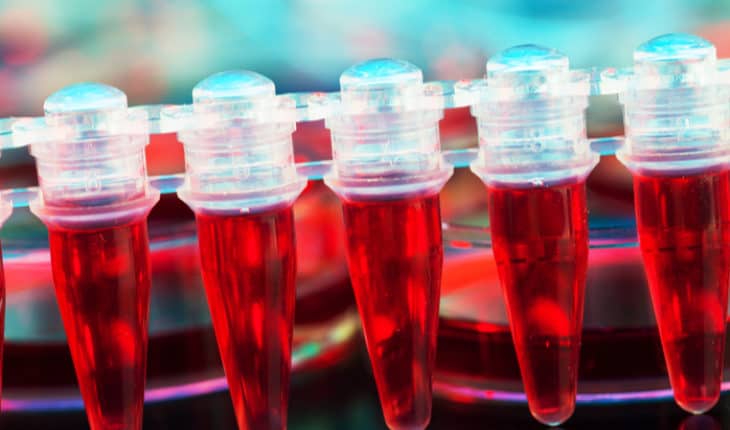New international stem cell research centre offers hope for patients with incurable diseases: An up to EUR$300 million international research centre has been established across three world-leading institutions that will develop new drugs and therapies using human stem cells offering hope to patients with heart, respiratory and kidney disease, diabetes and cancer.
The Novo Nordisk Foundation Center for Stem Cell Medicine (reNEW) is a collaboration between the University of Copenhagen in Denmark, the Murdoch Children’s Research Institute in Australia, and Leiden University Medical Center in The Netherlands, which will pave the way for future stem cell-based treatments. The new consortium, that will place Victoria on the international stage for regenerative medicine, is expected to stimulate a new wave of global investment in stem cell medicine and technologies, creating highly skilled jobs in this advancing medical field.
The centre has been made possible through a record stem cell medicine grant of up to EUR$300 million over 10 years from the Novo Nordisk Foundation, an international philanthropic foundation based in Denmark, which focuses on medical treatment and research.
Recent scientific advances now allow researchers to identify, isolate and engineer stem cells to create human tissue models, repair injured tissues and grow new organs. Stem cell medicine is delivering hope for new treatments across many currently untreatable diseases. A deep understanding of stem cell biology in development, tissue repair and disease is essential to realising this field’s therapeutic potential.

MCRI Professor Melissa Little, who has been appointed CEO of reNEW, said this was exactly what the research initiative would achieve through harnessing their collective experience around stem cell disease modelling for drug development, cellular therapies for tissue regeneration and translational regenerative medicine.
Professor Little is world-renowned for her pioneering studies into potential regenerative kidney therapies, including growing “mini-kidneys” in a dish from stem cells. The discovery could lead to new treatments for kidney disease, better ways to test new drugs and even bioengineering kidneys for transplant.
Professor Little will lead the reNEW administrative hub in Copenhagen and will also serve as Executive Director of the University of Copenhagen node. She will divide her time between Copenhagen and MCRI in Melbourne, with her research on kidney disease advancing in both sites.
“I am very excited about the amazing opportunity that reNEW represents,” said Professor Little, who was also elected President of the International Society for Stem Cell Research this year. “Building on the stem cell research excellence that exists within all partners, the centre delivers international collaborative critical mass and access to extensive technical and clinical translation expertise across all sites. This will enable outcomes across the breadth of stem cell medicine – new drugs based on human stem cell models, cell and tissue therapies and new cell and gene therapies. We can’t wait to get started.”
The reNEW faculty within MCRI will also include Heart Regeneration Group Leader Professor Enzo Porrello, who will act as node director for MCRI, along with Professor Andrew Elefanty, Professor Ed Stanley and Associate Professor David Elliott.

Mia, 16, from Melbourne, is among those who could benefit from advancements made in the stem cell medicine field. She was diagnosed with a complex congenital heart disease as a baby and required multiple surgeries during her first few years of life. Due to Mia’s condition, her heart functions with a single ventricle instead of two beating chambers.
“I was born with a few holes in my heart, essentially half a heart, and needed four open-heart surgeries,” she said. Ever since I was little I struggled with walking and dealing with the extremities of weather because my heart struggles to pump blood around my body.”
Mia and other patients like her are at increased risk of developing complications in adulthood, including heart failure. Researchers at MCRI are developing stem cell-derived heart tissue patches to boost heart function and ultimately prevent heart failure in children with a single ventricle.
“These heart patches could be the cure for heart disease and heart failure one day. This research is so important because it could save lives and I think that’s worth investing in,” Mia said.
“It’s really exciting to watch the research being done at MCRI and seeing little beating heart cells down a microscope. It’s incredible to think of the potential and my hope is other kids with heart diseases can live a normal life without surgeries and being pricked with needles from birth.”
The reNEW model will pivot from the traditional academic model of stem cell research to targeted, patient-centred outcomes. This vision is anchored on ‘state of the art’ stem cell science, which will feed into three clinically relevant research themes:
- The reBUILD theme will focus on the use of stem cells to regenerate or recreate tissue after it has been damaged or destroyed. Programs include stem cell-based therapies for diseases such as Parkinson’s disease, congenital heart disease, diabetes, ulcerative colitis and chronic renal disease, with projects moving into pre-clinical and clinical trials.
- The reSOLVE theme will screen for potential drug candidates using stem cell-based models of human tissue. This will include lab-grown models of mini-organs, such as 3D gut organoids to screen for drugs to treat conditions such as chronic ulceration and inherited kidney and heart disease.
- The reWRITE theme will use a combination of gene editing and stem cell technologies to develop new treatment strategies for genetically inherited diseases. These include immune deficiency disorders and progressive congenital muscle disorders.
In order to align the research with community expectations and regulations, a fourth theme PREPARE will study the societal, ethical, regulatory and legal barriers in stem cell medicine, paving the way for the delivery of future treatments.
Scientists at the three institutions will work in collaborative groups across all themes to provide new therapeutic options for patients with incurable diseases. Exchange programs and joint technology platforms in the reNEW model will fuel these collaborations and also the training of new generations of scientists in translational stem medicine.
Under the collaboration, Melbourne University Professor Megan Munsie will also be joining MCRI part-time. Professor Munsie is an expert in stem cell ethics, legislation and the global regulatory environment.
MCRI Director and Professor Kathryn North said, “we are excited to commence this international collaboration that will advance stem cell-derived medicine and ultimately accelerate delivery of effective and targeted treatments for children and adults with incurable disease.”
Prorector for Research at the University of Copenhagen David Dreyer Lassen said he was looking forward to taking the first steps on a long journey toward better stem cell-based medical interventions.
“I am very pleased that the University of Copenhagen will be the coordinating hub and a strong partner in this exciting international consortium, with a strong emphasis on translating excellent basic research into future stem cell-based treatments,” he said.
Professor Pancras Hogendoorn, Dean and Executive Board member at Leiden University Medical Center said he was excited by the initiative as it created the critical mass of excellent science, educational underpinning, proven translational potential and cutting-edge infrastructure to be transformational in this emerging medical field.
Novo Nordisk Foundation CEO Mads Krogsgaard Thomsen said stem cell medicine truly promised to be a game-changer when it came to addressing some of the major health challenges facing the world today.
“With the establishment of this new centre, the aim is not just to further stem cell-based research through international collaborations, but also to strengthen the pathway from scientific discovery to targeted outcome, whether in the form of new medical technology or new forms of treatment for the benefit of patients,” he said.
The research activities at the Novo Nordisk Foundation Center for Stem Cell Medicine will start in January 2022.
International announcement of reNEW
- New lipid-based pathway discovered as key to memory formation - 25th June 2025
- Crucial link could explain how Alzheimer’s takes hold - 25th June 2025
- Understanding Your Mind Can Improve Daily Life - 25th June 2025







